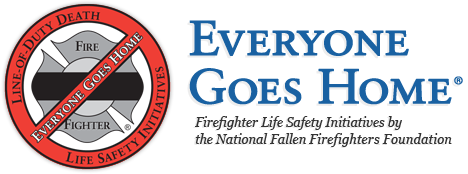The risk of firefighter suicide is a growing concern within the fire service. More research has become a priority to better understand the issue and assist in developing interventions. A recent study of 893 firefighters by Florida State University and published in the latest issue of the Journal of Psychiatric Research shows a strong relationship between post-traumatic stress symptoms (PTSS) and suicidal thoughts and attempts among firefighters.
To help firefighters recognize PTSS within themselves, co-workers, family or friends and get valuable intervention resources, the National Fallen Firefighters Foundation (NFFF) through the Everyone Goes Home® program and the Medical University of South Carolina have created new materials that inspire everyone to ACT Now!
“The acronym ACT reflects three simple, yet powerful, steps to Ask how someone is feeling, show that person you Care about their well-being and Take them to get the help they need,” explained Chief Ron Siarnicki, Executive Director of the NFFF. “The concept was based on recommendations from our Suicide Meeting in October of 2014 to adapt the Army’s ACE program for the fire service.”
A free downloadable poster gives suggestions on how to help some who is struggling. The posters can be displayed in any department.
In addition, the Foundation has partnered with the Technology Applications Center for Healthful Lifestyles, College of Nursing, and the National Crime Victims Research and Treatment Center at the Medical University of South Carolina to create the Peer Pocket website and app. This will help access additional resources to raise awareness about suicide and offer tools for intervention.
“We hope everyone will familiarize themselves with the research and findings from the Florida State University study and access these valuable resources so they will be ready to ACT whenever necessary,” said Siarnicki.
The posters, links to the app and the Florida State University study on PTSS, as well as other information and resources about suicide and behavioral health are available on the behavioral health section of our website.
Chief Siarnicki also expressed his gratitude for the ongoing partnership with MUSC and the financial support of DHS/FEMA’s Grant Program Directorate for Assistance to Firefighters Grant Program – Fire Prevention and Safety Grants. “Without partnerships like these, we would not be able to address this consequential issue in today’s fire service. We may never know about the people that were impacted by this work but I have no doubt that it will make a difference.”



